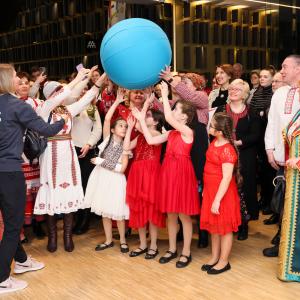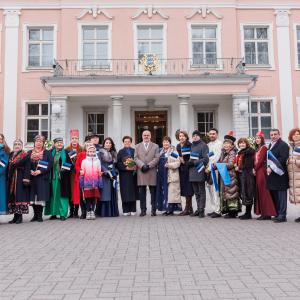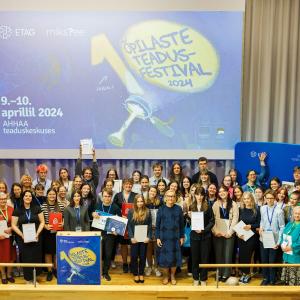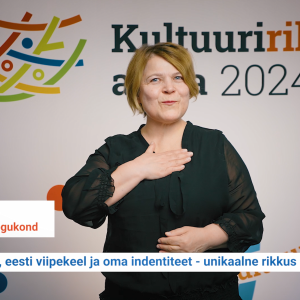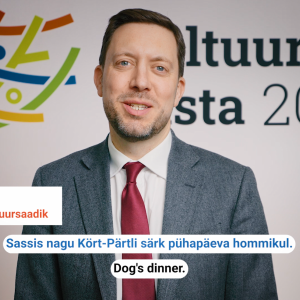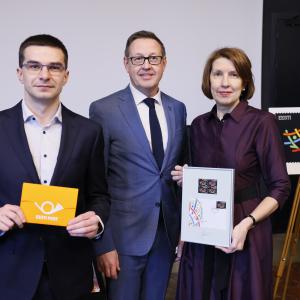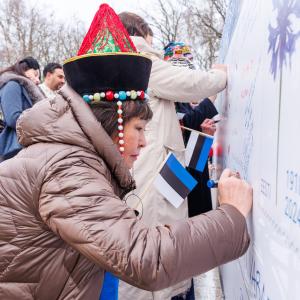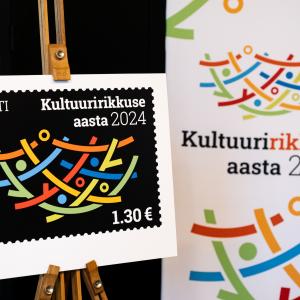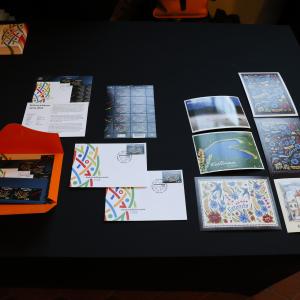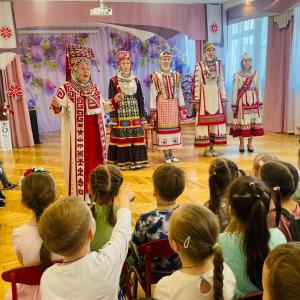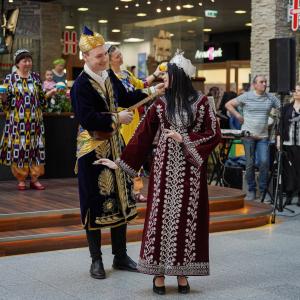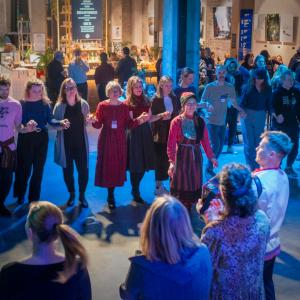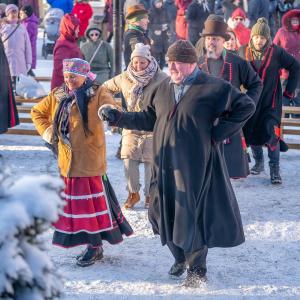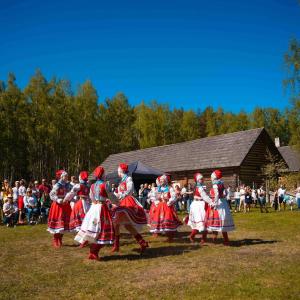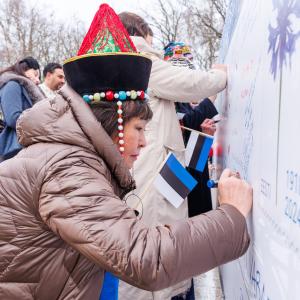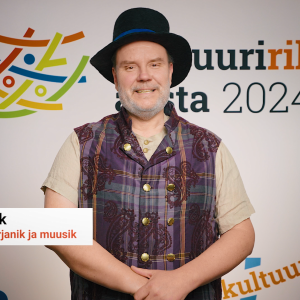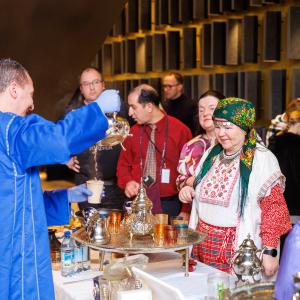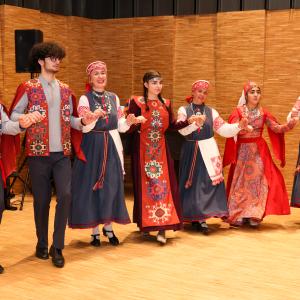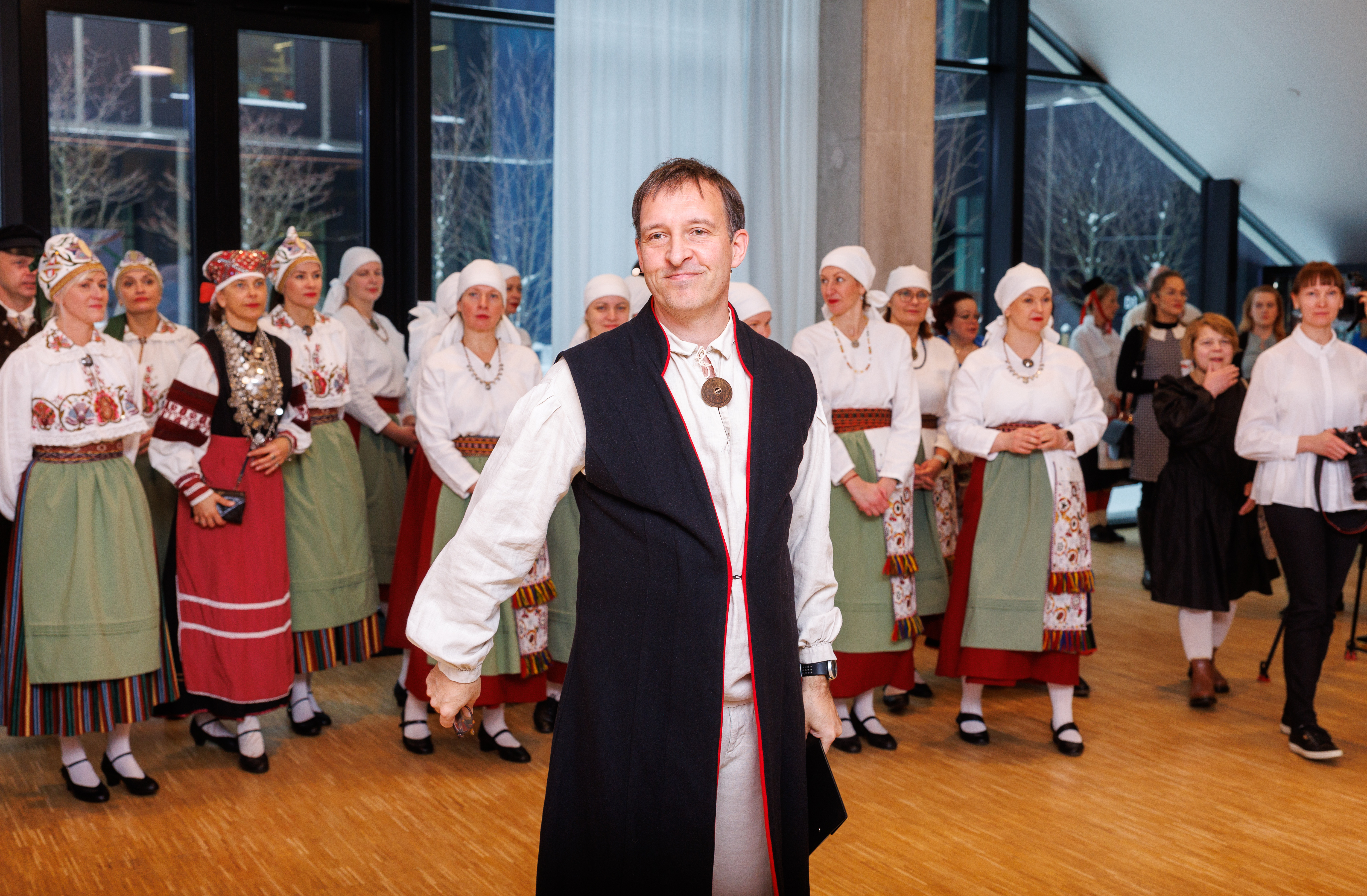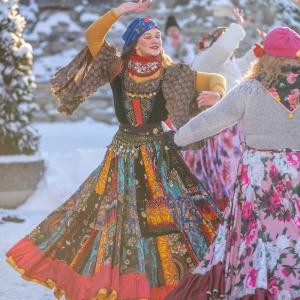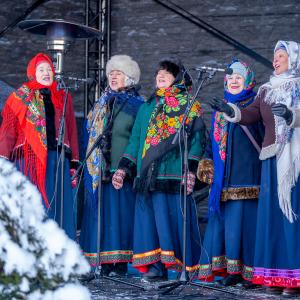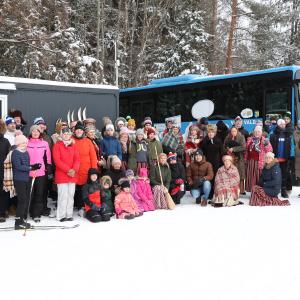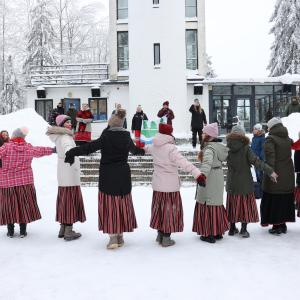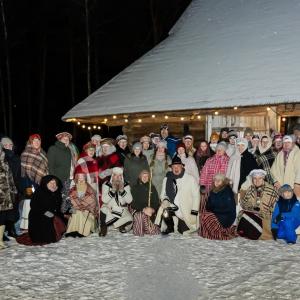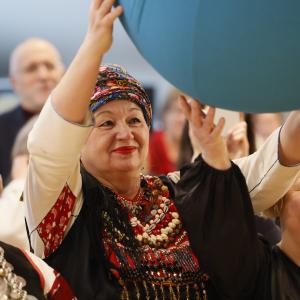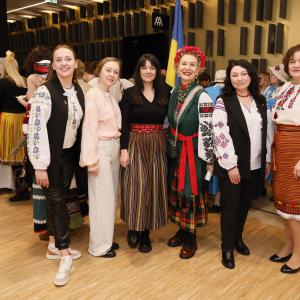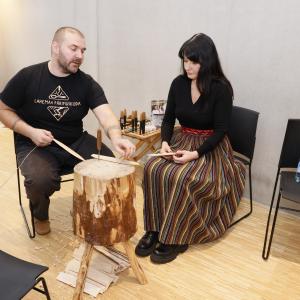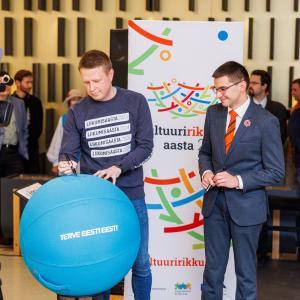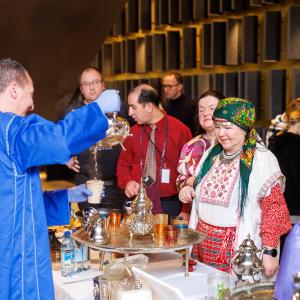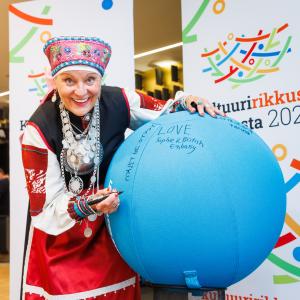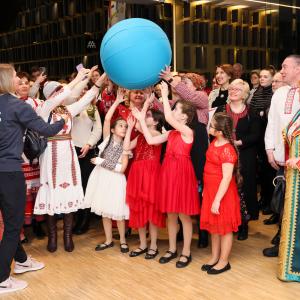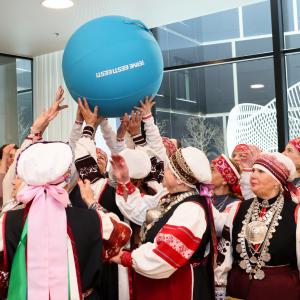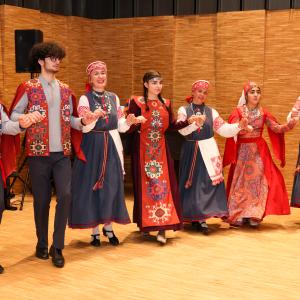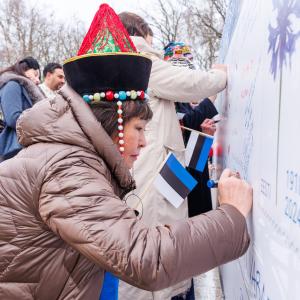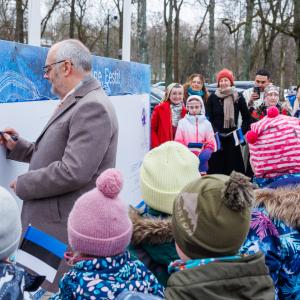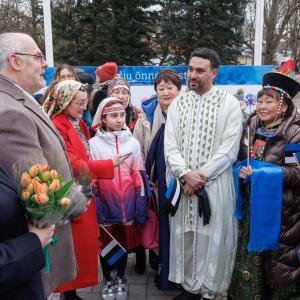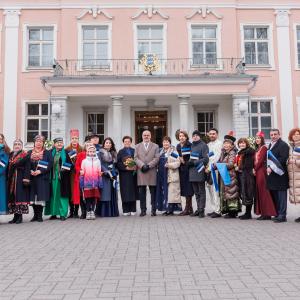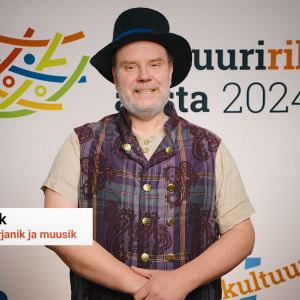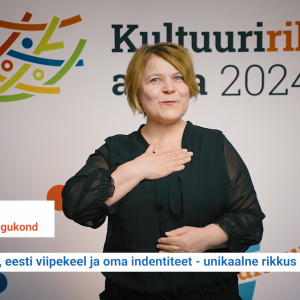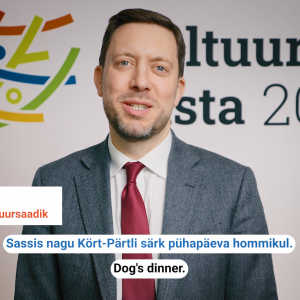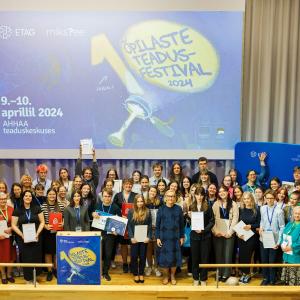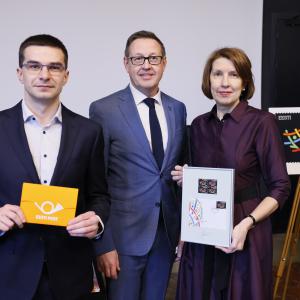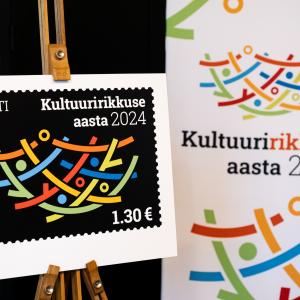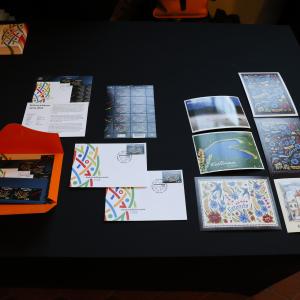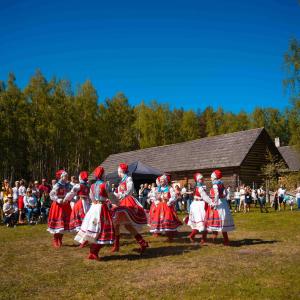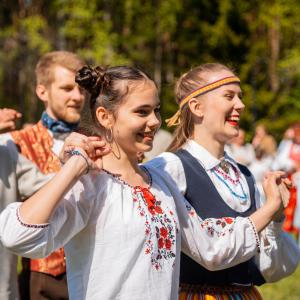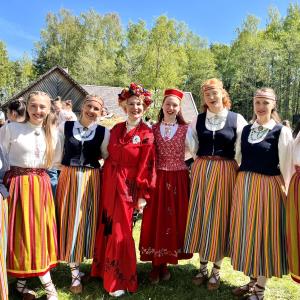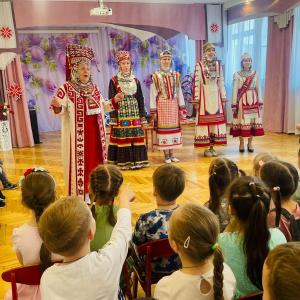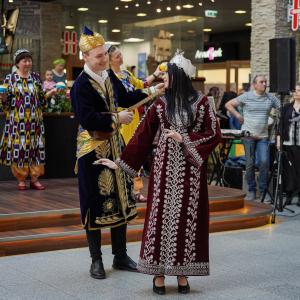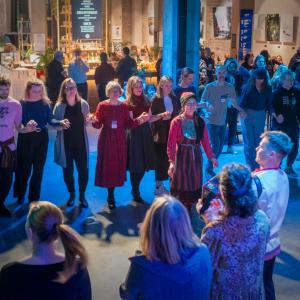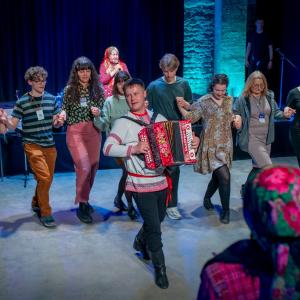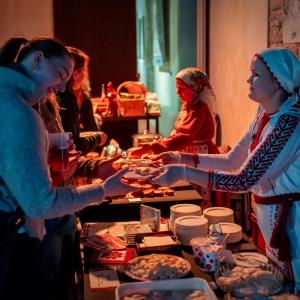Mizuki first came to Estonia when she was three years old. She doesn't remember anything about it, but the photos show how she made the day trip from Helsinki to Tallinn with her mother and father.
However, she does recall very well that when she was attending university, she was able to choose an international study program and quickly opted to go to Tartu, Estonia (not to mention the project manager from the University of Tartu who was working with the students there was very cool).
Now Mizuki has decided to stay in Estonia for a long time. Her home and friends are here.
Mizuki works in the Japanese restaurant Tokumaru, where she is a cook and quality manager, and sometimes she serves the food as well.
"Estonians like ramen the most, it's a kind of noodle soup. For me it's sometimes strange how they ask for black bread with their soup - you're not supposed to eat it with bread and we don't even have any bread to offer them, so I offer them rice instead," she says. But thanks to Estonians, she has also discovered new tastes - for example, Philadelphia sushi, which isn't made in Japan. "At first, I thought it was very weird. Why are you putting cream cheese in your sushi? But now I have learned that it is actually really tasty." According to Mizuki, for the Japanese sushi is festive food. "We make it for parties and holidays and most often we just get it to go from a restaurant or have it delivered."
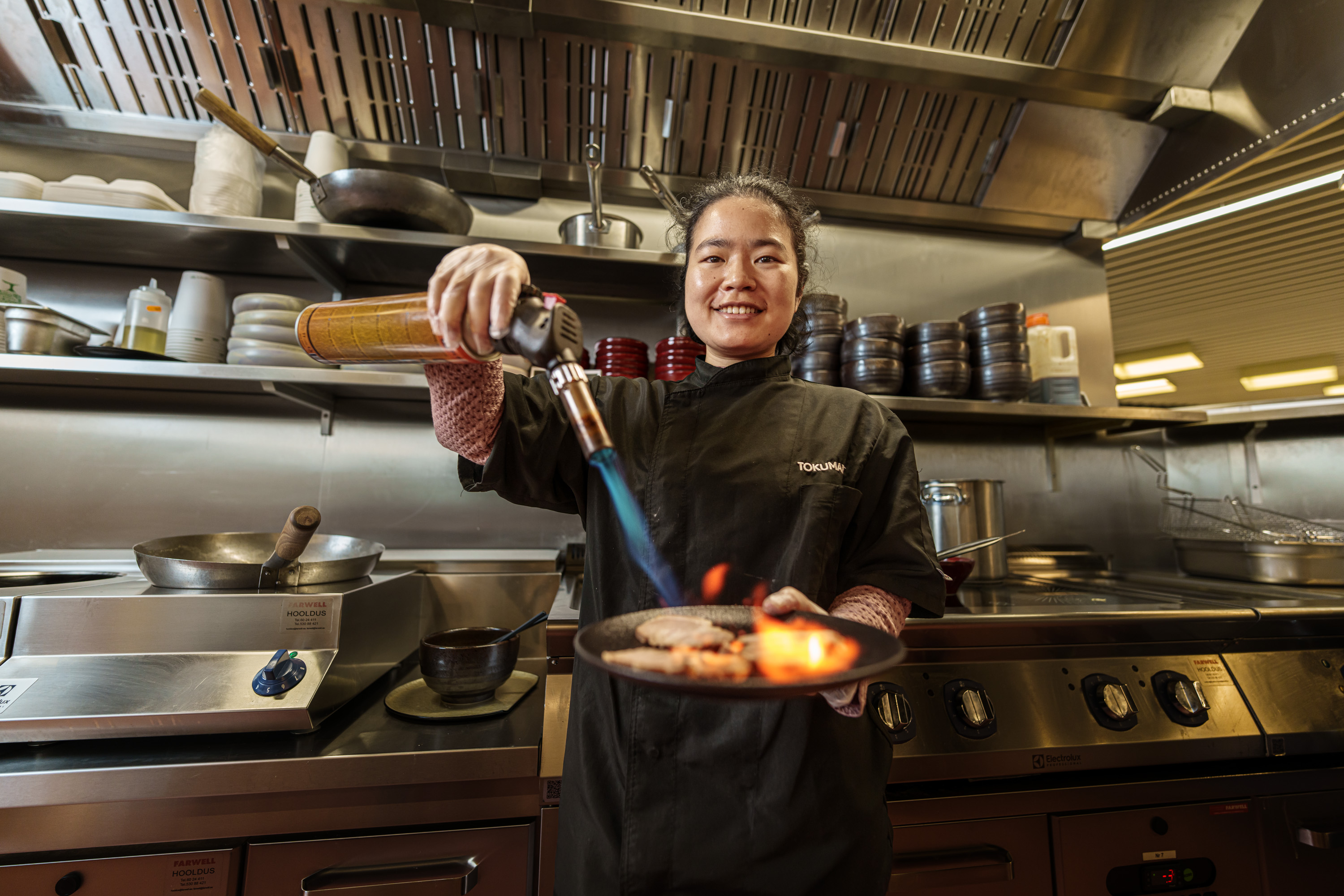
Mizuki brought a rice boiler, miso paste, and soy sauce with her from Japan. Among Estonian dishes, she likes pea soup, blood sausage, and kohuke, a glazed curd snack, the most. "Your oven-baked potatoes are also quite good," she says. She eats one dish quite differently from Estonians. Namely she eats sült, a kind of jellied meat, with hot rice. It's supposedly very delicious.
Mizuki speaks Estonian with her colleagues at Tokumaru. "I asked my colleagues to speak Estonian with me. The language is difficult, the cases are difficult." She discovered that when she started to speak Estonian, people became friendlier. "I can speak Estonian with clients and that's really nice! Especially when they praise me, that really motivates me to learn the language."
Mizuki likes how Estonians know how to relax by taking time off in the summer to go to their summer houses or to travel around. "Estonians take long vacations and that's good," she acknowledges and adds that she does now too. "In the winter, I went hiking with my friends," she says. "It was really fun. You have long winters and it's hard at times. In Japan, we also have them, but it's easier to get through them somehow."
"Estonians are supposedly a bit closed at first, like the Japanese are, but when you've spent more time with them, they open up more," Mizuki adds, speaking about the Estonians.
"And in Japan, there is so much paperwork, but I have already become accustomed to all of these e-systems that we have here. But I still haven't gotten used to the dental insurance system. In Japan, the person pays 30 percent and insurance covers 70 percent," explains Mizuki.
Mizuki likes Curly Strings a lot. "The band has even been to Japan and my mom went to their concert," who has spread her love of Estonia to her whole family. She loves music in general, but especially enjoys the Song Festival. "There were so many people at the song festival and they all sang together -- I had never seen such a thing. It was just like, wow. Amazing."
Author: Diana Lorents/HAVAS
Photo: Virgo Haan/HAVAS

